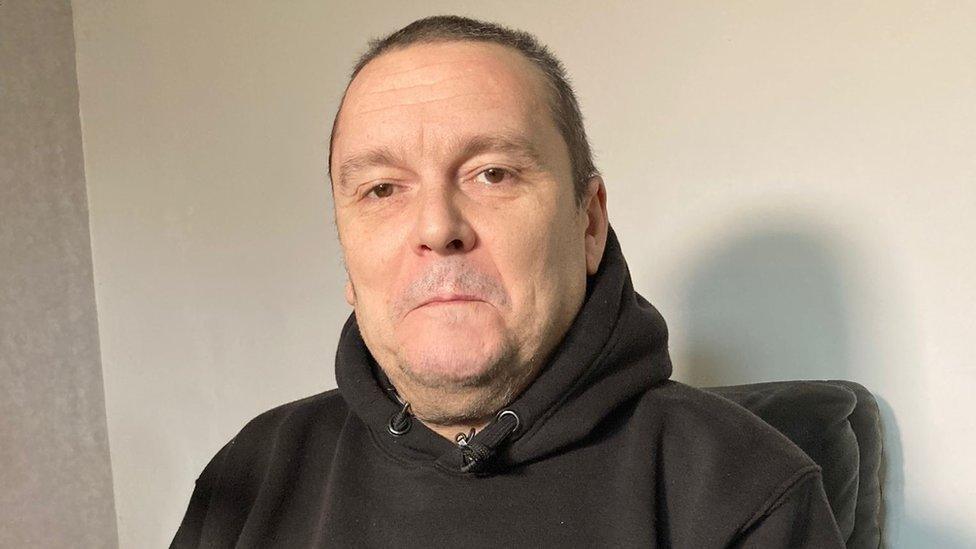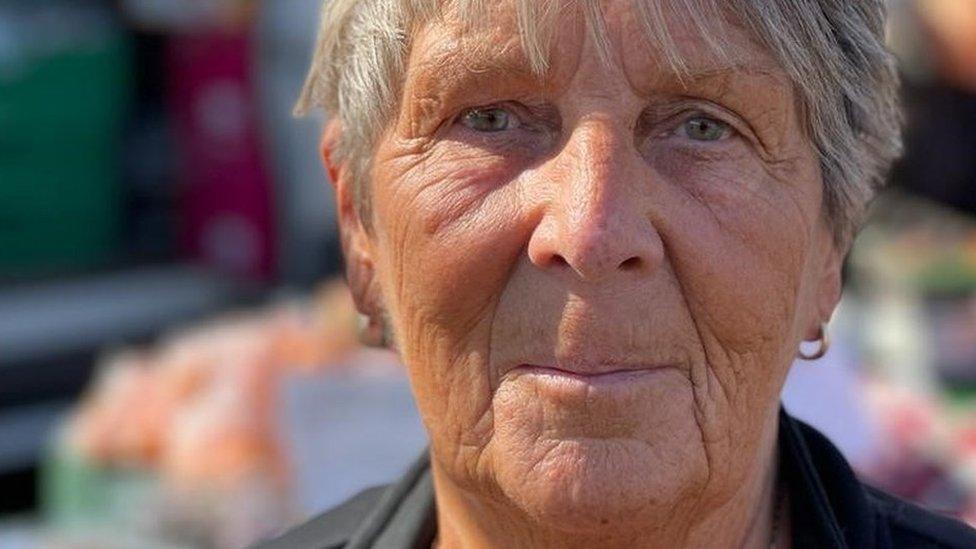Cost of living: 'I can't afford to charge my mobility scooter'
- Published

Robert says not being able to go out and about is soul destroying
A disabled man has said he is spending more time indoors because he cannot afford to charge his mobility scooter.
Robert Hand, from Nottingham, has not worked since an accident eight years ago left him with a spinal injury.
He said his mobility scooter was one of his few ways of getting out but, with energy bills increasing, he cannot afford to use it.
Health charity Improving Lives said rising costs were impacting people's quality of life.
'Soul destroying'
"To get the battery [of the scooter] to full charge, it takes about 45 minutes to an hour," said Mr Hand, who previously worked as an engineer.
"Obviously I'd like to go out. I've got options of online shopping, if I need food. But it's soul destroying [not being able to go out].
"It does worry me because if it keeps going up the way it's going up, it's going to be beyond anything I can pay."
Mr Hand added he was "scraping by" on disability benefits.
"I like to keep myself warm. It's not nice being cold, especially when I'm not 100% well," he said.
Josh Wood, business manager for Improving Lives, a charity based in Nottingham, said: "Not having an ability to charge that scooter means you don't have access to the same quality of life because of the rising cost of living. I think it's a real problem.
"Unfortunately I think it's going to get worse. I think there's going to be another price rise in six months' time and I'm really not sure what people are going to do."
A government spokesperson said: "We know that living with a long-term illness or disability can impact on living costs and financial support is available to those with disabilities, or those who care for them.
"We urge people to check whether they are receiving all of the benefits to which they are entitled, and to be aware of the wider support this opens up, including help with transport, broadband or prescription costs."
It said the government was also acting to help more than 27 million households with rising energy costs, via the energy price cap and its household support fund.

Follow BBC East Midlands on Facebook, external, Twitter, external, or Instagram, external. Send your story ideas to eastmidsnews@bbc.co.uk, external.
Related topics
- Published23 March 2022
